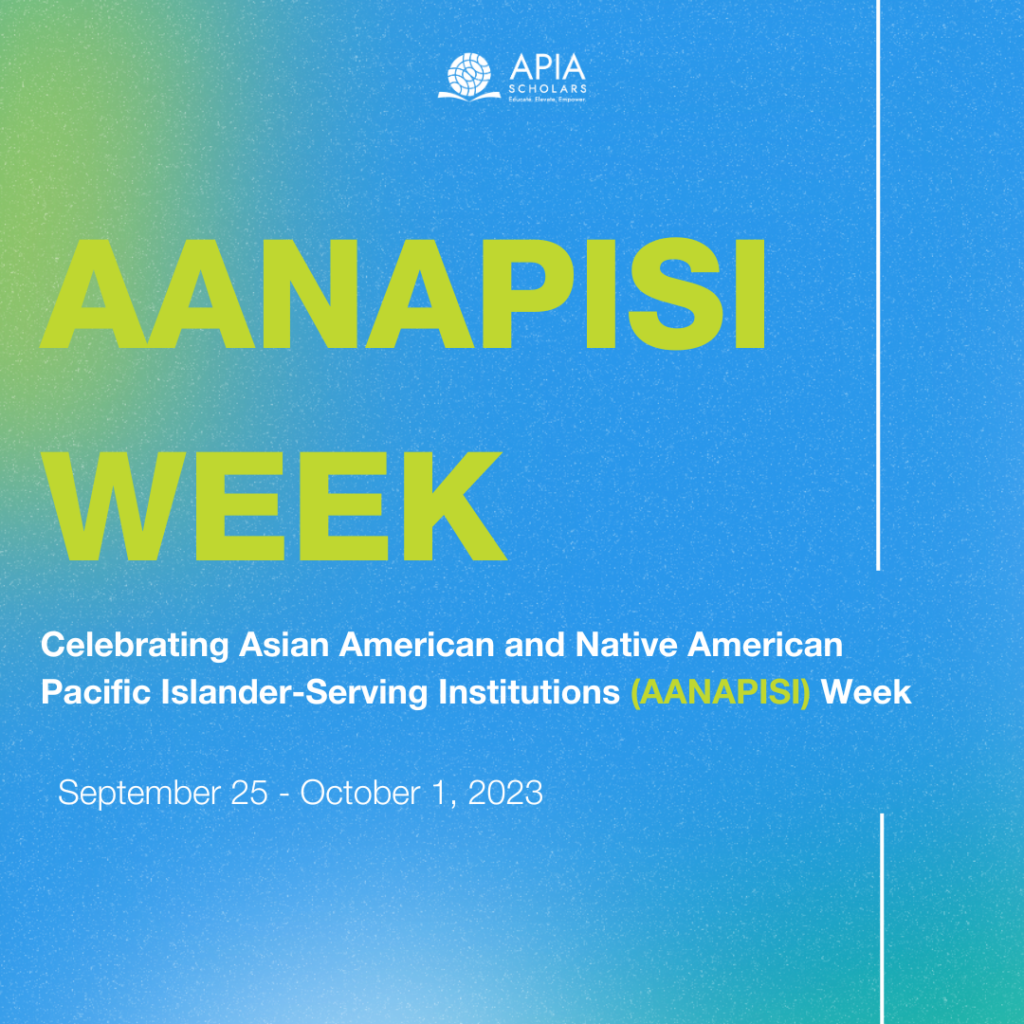September 28, 2023 IN: Education, National, Press Room
SEARAC Celebrates President Biden’s Proclamation of Asian American and Native American Pacific Islander-Serving Institutions (AANAPISI) Week

WASHINGTON, DC – SEARAC proudly celebrates President Biden’s proclamation of September 25 through October 1, as Asian American and Native American Pacific Islander-Serving Institutions (AANAPISI) Week 2023. We commemorate 16 years of the Asian American and Native American Pacific Islander-Serving Institutions (AANAPISI) designation alongside our education partners.
SEARAC reflects on our legacy of advocating for education equity and leading the push for the creation of AANAPISIs. Congress first established the AANAPISI program in 2007 to enhance access and quality of postsecondary education programs for low-income, first generation Asian American, Native Hawaiian, and Pacific Islander (AANHPI) students. AANAPISIs remain crucial for Southeast Asian American students by uplifting the unique needs and assets of SEAA students and offering resources to overcome disparities they experience as refugees or descendents of refugees.
SEARAC continues to advocate for increased support for AANAPISIs and access to higher education for Southeast Asian Americans. While AANAPISI campuses make up only 6.1% of all U.S. colleges and universities, they enroll nearly half of all AANHPI students in the country.
“AANAPISIs strengthen our country by affirming that all students, including first generation students, English learners, and students of color, especially within the Southeast Asian American community, have the opportunity to access quality higher education,” Quyên Đinh, SEARAC Executive Director stated. “This week, we are proud to celebrate President Biden’s proclamation of AANAPISIs Week with our education partners and also reflect on SEARAC’s legacy of championing education justice. SEARAC remains steadfast in our commitment to advocate for policies that open the doors of opportunity for our students. All students, including Southeast Asian American students, deserve the resources and opportunities to fulfill their dreams and ambitions.”
To learn more about AANAPISIs, visit the US Department of Education’s website. You can learn more about the unique educational needs of Southeast Asian Americans on SEARAC’s website.




